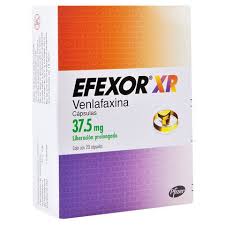Xopenex
Levalbuterol Metered Dose Inhaler(Xopenex)
Class: matchesBeta-2 opponent
Brand Name: metered Xopenex
Generic Name:
Drug Type: inhaler(recommended for Bronchial spasms management)

Overview
Xopenex (Levalbuterol Metered Dose Inhale) is a prescription medicament primarily recommended for the companying therapeutics and avoidance of respiratory spasms, which involves the constriction of airways, commonly with exacerbation and chronic unconstructive pneumonic disease (COPD). As a matches beta–2 sympathomimetic agonist, it functions by relaxing the muscles neighbourhood the airways, thereby facilitating easier draw breath.
is regarded as a more selective alternative to albuterol, another bronchodilator, and is thought to produce fewer side effects, particularly concerning tachycardia (improve heart rate) and aftershock.
Tools of Action
Levalbuterol exerts its effects by activating beta–2 adrenergic receptors located in the smooth muscle of the airways. This stimulation results in muscle relaxation, which leads to the dilation of the airways, allowing for improved airflow into the lungs. The medication acts rapidly, typically providing relief within minutes.
Formulations & Routes of Administration
Inhalation Solution:
Administered through a nebulizer.
Commonly utilized for acute bronchospasm or as a maintenance therapy for patients with asthma or COPD.
Metered-Dose Inhaler (MDI):
Provided in a pressurized canister that dispenses a precise dose of the medication.
Generally employed for immediate relief (rescue inhaler) during asthma attacks or episodes of Bronchial spasms.
Indications
Asthma: Levalbuterol serves as a bronchodilator for alleviating acute asthma symptoms and preventing exercise-induced Bronchial spasms.
Chronic Obstructive Pulmonary Disease (COPD): Levalbuterol is indicated for relieving Bronchial spasms in patients with COPD, including those suffering from chronic cold or emphysema.
Acute Bronchospasm: Utilized in the management of sudden airway constriction (e.g., during an asthma attack or exacerbation of COPD).
Dosage
Adults:
For inhalation via metered-dose inhaler (MDI): Generally, 1 to 2 inhalations (45 mcg per inhalation) may be administered every 4 to 6 hours as required for bronchospasm.
For nebulizer solution: The recommended dosage ranges from 0.63 mg to 1.25 mg every 6 to 8 hours.
Children (ages 4-11):
For inhalation via MDI: 1 to 2 inhalations (45 mcg per inhalation) may be given every 4 to 6 hours as necessary.
For nebulizer solution: The dosage should be between 0.31 mg and 0.63 mg every 6 to 8 hours.
It is important to note that the precise dosage is contingent upon the patient’s condition, age, and response to the medication. Always adhere to the instructions provided by the prescribing physician.
Side Effects
Common side effects may include:
– Tremors (particularly in the hands)
– Nervousness
– Headaches
– Dizziness
– Increased heart rate (tachycardia)
– Muscle cramps
– Throat irritation (associated with inhaler or nebulizer use)
Less frequently observed but more severe side effects may consist of:
– Chest pain
– Palpitations
– Severe dizziness or fainting
– Shortness of breath or wheezing (paradoxical bronchospasm)
– Hypokalemia (reduced potassium levels)
It is crucial to note that paradoxical bronchospasm, characterized by a sudden exacerbation of breathing difficulties following inhaler use, is a rare yet serious side effect. Should this occur, the patient must discontinue the use of Xopenex immediately and seek guidance from a healthcare provider.
Warnings and Precautions
Cardiovascular Concerns: Levalbuterol should be administered with caution in individuals with a history of cardiac conditions, arrhythmias, or hypertension, as it may elevate heart rate and blood pressure.
Paradoxical Bronchospasm: As previously mentioned, this rare but serious risk may exacerbate respiratory issues.
Hypokalemia: Caution is advised for patients with a history of low potassium levels, as levalbuterol may further decrease potassium levels.
Hyperthyroidism: Individuals with hyperthyroidism may exhibit heightened sensitivity to the effects of levalbuterol.
Pregnancy and Breastfeeding: Levalbuterol is categorized as a Category C medication during pregnancy
Drug Interactions
Levalbuterol may have interactions with various medications, including:
Beta-blockers: Drugs such as propranolol or metoprolol can diminish the efficacy of levalbuterol and may provoke bronchospasm in certain individuals.
Diuretics: The concurrent use of diuretics (e.g., furosemide, hydrochlorothiazide) may elevate the risk of hypokalemia, or low potassium levels.
Monoamine oxidase inhibitors (MAOIs): These medications can amplify the side effects associated with levalbuterol, including heightened heart rate and elevated blood pressure.
Other sympathomimetic agents: Caution is advised when administering other stimulant-type medications (e.g., specific decongestants or appetite suppressants).
Overdose Symptoms
In the event of an overdose, individuals may present with:
Severe tachycardia (accelerated heart rate)
Tremors and feelings of anxiety
Hypertension (elevated blood pressure)
Chest discomfort
Hypokalemia
Immediate treatment is essential for overdose situations. In cases of significant overdose, professional medical assistance is necessary, and the patient may require supportive care, including heart monitoring, potassium replenishment, and medications to alleviate symptoms.
Storage
Store at ambient temperature (15-30C or 59-86F).
Protect from heat and moisture.
Keep out of children’s reach.
Key Points to Remember
Xopenex is indicated for the rapid alleviation of asthma and COPD symptoms and serves as a maintenance therapy for bronchospasm.
It is typically well-tolerated; however, side effects such as tremors and increased heart rate may occur.
Patients should closely monitor their reactions and adhere to prescribed dosages.
In the event of paradoxical bronchospasm (deterioration of symptoms), seek immediate medical assistance.
Always consult your healthcare provider prior to initiating or discontinuing any medications, including levalbuterol, to confirm its suitability for your condition and medical history.
In the event of an overdose, individuals may present with:
Severe tachycardia (accelerated heart rate)
Tremors and feelings of anxiety
Hypertension (elevated blood pressure)






